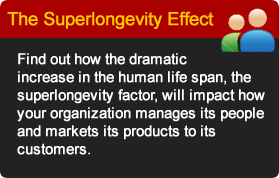THYNC brings electronic mood enhancement to consumer market
THYNC brings electronic mood enhancement to consumer market
August 24, 201511:53 AM MST
THYNC enters electronic mind-brain enhancement consumer market
Photo by Sean Gallup/Getty Images
A new device, Thync, promises to provide its users with the ability to increase their energy levels or create a sense of inner calm with a mere flick of a button. The device, which you attach to your head and operate via your smart phone, delivers to specific areas of your brainelectronic pulses that can induce a variety of mood changes, and might even improve your powers of concentration.
The use of electronic stimulation of the brain to influence mood and neural functioning has been ongoing for at least the last few decades. The process, generally referred to as “transcranial magnetic stimulation” (TMS), delivers pulses of energy a few centimeters into its wearer’s brain, inducing electrical activity in brain cells.
Neuroscientist Mark George and colleagues at the Medical University of South Carolina, as well as other researchers, have found that such pulses delivered via a device connected to a TMS machine can increase the pulse-recipients’ reaction time on tests. TMS has been found to be effective in treating neuropathic pain, depression, and other psychiatric disorders. TMS’ techno- cousin, transcranial direct-current stimulation, or tDCS, has been found to improve patients' vigilance, intelligence, learning and memory. In many cases tDCS has been used to relieve chronic pain and the symptoms of depression and treat, Parkinson’s and schizophrenia. Hospitals such as Beth Israel Deaconess in Boston and Beth Israel in New York have used electronic stimulation technologies to treat chronic pain and depression.
The Thync module brings the exciting potential of electronic brain stimulation to the consumer field. The module, which is a curved white apparatus, connects wirelessly to a smart phone using Bluetooth. The actual module attaches to specific points on the head via two adhesive strips you first place on the module itself.
The user then powers the module and pairs it to the smart phone. This starts a session lasting five to twenty minutes during which the device delivers low-level pulses of electricity into your head. The user can adjust the level of current delivered to the head.
Thync comes with two basic settings: a “calm” vibe and an “energy” vibe.
Journalists and tech reviewers are generally wary of the hype surrounding most new technologies. So I was surprised at the overwhelmingly positive response of such tech-savvy writers. If the reviews are to be believed, Thync lives up to its creators’ claims.
A Wall Street Journal reporter stated that “I was able to use Thync instead of that second cup of coffee to boost my energy in the afternoon. Last Wednesday, a Thync vibe even coaxed me out of a late-afternoon lull to exercise”
One writer was more effusive in his endorsement of the Thync experience. He stated emphatically that “it can push me from an anxious, over-thinking mood to one where I'm cool, collected and laid-back like a THC-infused Rastafarian.” And when he feels “sluggish” or unmotivated, “Thync can also peel that layer away, like the sun burning a morning fog off of my consciousness.”
A New York magazine article on Thync was entitled “I Tried a Brain-Zapping Gadget and It Made Me Feel High.” Enough said. When she put Thync on “calm,” office colleagues noticed a change in mood, remarking on how “mellow” she seemed.
There is little doubt that such technologies will find their way into people’s personal and work lives. Certainly, everyone is looking for the competitive edge, in school and at their
jobs. Researchers believe that the use of TMS administered to someone who has taken a smart pill such as Provigil could boost a person’s intelligence immeasurably. Some imagine that in as little as ten years from now you will be able to visit a “brain spa” to get a temporary boost in your intelligence quotient via TMS.
Evidence shows that a certain segment of users report little if any effect on their energy level or mood. The company says that poor results will occur if the user places the strips and the gadget on the wrong part of the head. And it might just be the case that some users are physically or psychologically more receptive to mood-changing technologies.
The company provides a 30-day money-back guarantee to purchasers, a welcome perk considering that Thync costs $299, and that’s not counting the cost of the adhesive strips.
The Thync device is opening up a new frontier in the field of human enhancement. We can be certain that before long other more powerful devices will appear on the market that will empower individuals to expand their intellectual and creative potential.
DR. ZEY'S PRESENTATION TOPICS



